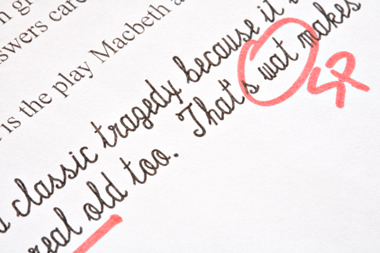This article was written and submitted by Sally Uresti, from Papersconsulting.com
Have you ever imagined whether or not you are good at proofreading your own work? Research has shown that people are not so good at proofreading their own work. In fact, some of the best writers we know never proof their own work. Their best works are proofed by other people. For a few people however, they prefer doing these themselves. This article gives you basic tips that will enable you brush up on your proofreading skills and do it all by yourself.
Using grammar and spell checkers
Every word processor comes with its own spelling and grammar checker tools or extensions that allow you to check mistakes easily. You don’t have to be a genius to figure how this works. As such, you shouldn’t ignore the small green underlining on typed work. You should also look out for the different spelling suggestions and recommendations. Alternatively, you can use spell checkers and grammar checkers. Although these don’t give 100% results, they should be enough to give away enough mistakes.
Read out loud
Reading out loud is one of the most valuable proofing techniques. It’s the best technique you can use against awkward and omitted words. Hence, it’s the easiest way to detect the mistakes you missed when you were writing. The other advantage of reading out loud lies in the ability to detect sentence and phrasing mistakes that may arise.

Look up for ambiguous words
There are words you write that are probably ambiguous. They either distort meaning or mean something different. The best way to deal with such words is to look them up in the dictionary. Homophones are the most commonly mistaken words. Make sure you look them up to ensure they have been used correctly in context.
Refine the grammar
Not everyone is strong grammatically or with spelling. To be a good writer, this is something you have to deal with. Find a way to brush up on these skills. This means, if you have to go back to school or pick up the grammar handbook, then just do it. Having a handbook for instance, enables you to correct yourself when mistakes arise. This is a critical step when you want to become better at proofing your work.
Revisit your work later
In one sitting, it’s quite difficult for one to catch all the mistakes they make in their writing. Could be it’s the initial celebration that comes with completing work. According to experts, the best approach is stopping when you are done writing, then coming back to it later. The essence of this is to feel fresh. Doing this promotes your ability to detect the omissions you didn’t get the first time. It also makes the revision much easier.
Print it out
It’s quite difficult to proofread soft copy. This is because work that is on screen is formatted in a way that is hard to detect errors. However, when the work is printed out on paper, real mistakes are easier to tell. You can avoid or correct them this way.
Let another read it
Other people can see mistakes we missed. Naturally, it’s because that’s not their work. In the end, you will be able to detect the mistakes you missed as a person and hence, deliver top notch work.
Author’s Bio: Sally Uresti is paper editor at Papersconsulting.com
This post was last modified on August 2, 2022 4:33 pm